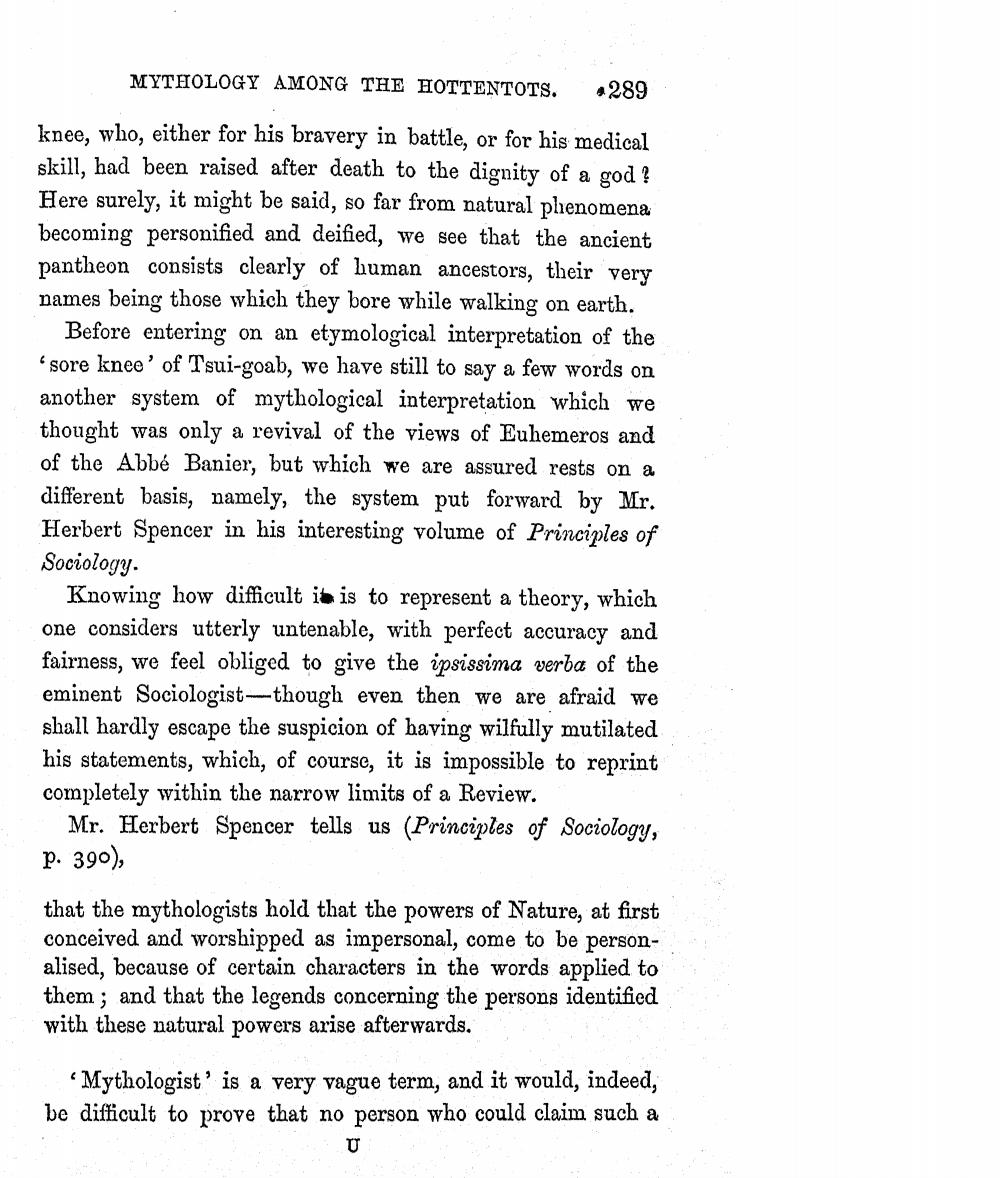________________
MYTHOLOGY AMONG THE HOTTENTOTS. 289 knee, who, either for his bravery in battle, or for his medical skill, had been raised after death to the dignity of a god ? Here surely, it might be said, so far from natural phenomena becoming personified and deified, we see that the ancient pantheon consists clearly of human ancestors, their very names being those which they bore while walking on earth.
Before entering on an etymological interpretation of the sore knee' of Tsui-goab, we have still to say a few words on another system of mythological interpretation which we thought was only a revival of the views of Euhemeros and of the Abbé Banier, but which we are assured rests on a different basis, namely, the system put forward by Mr. Herbert Spencer in his interesting volume of Principles of Sociology.
Knowing how difficult it is to represent a theory, which one considers utterly untenable, with perfect accuracy and fairness, we feel obliged to give the ipsissima verba of the eminent Sociologist-though even then we are afraid we shall hardly escape the suspicion of having wilfully mutilated his statements, which, of course, it is impossible to reprint completely within the narrow limits of a Review.
Mr. Herbert Spencer tells us (Principles of Sociology, p. 390),
that the mythologists hold that the powers of Nature, at first conceived and worshipped as impersonal, come to be personalised, because of certain characters in the words applied to them; and that the legends concerning the persons identified with these natural powers arise afterwards.
Mythologist' is a very vague term, and it would, indeed, be difficult to prove that no person who could claim such a




